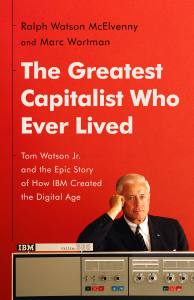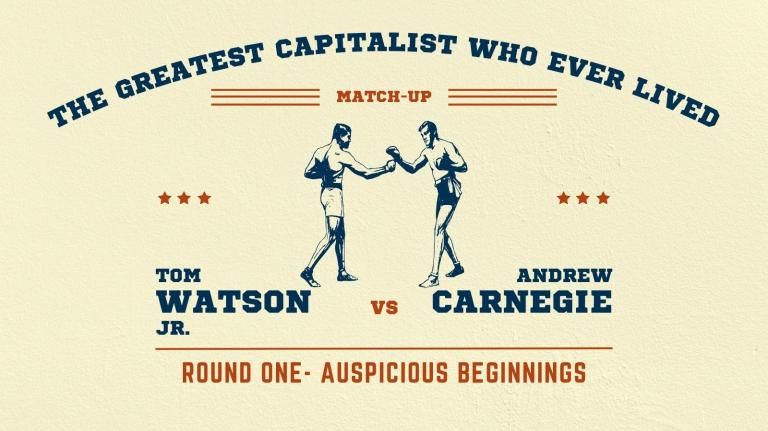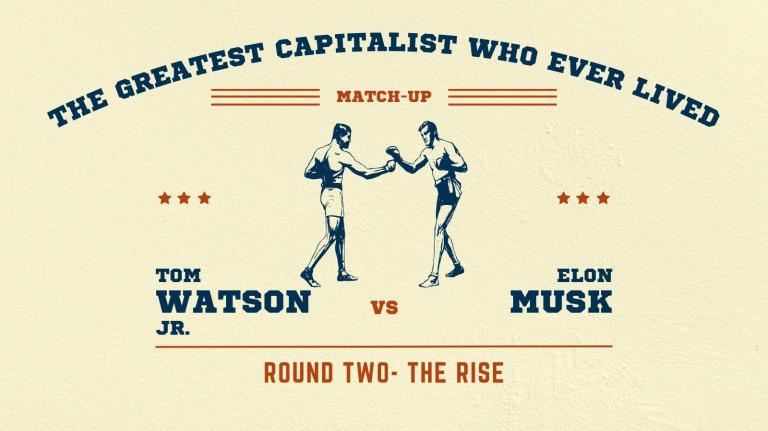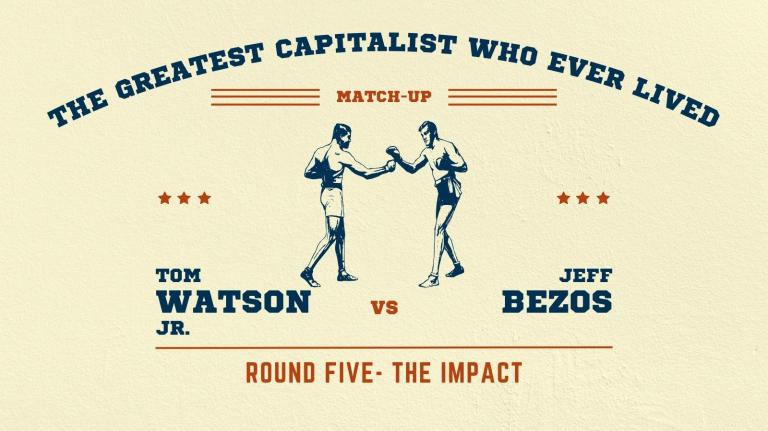The Greatest Capitalist Match-Up Round 4: The Comeback
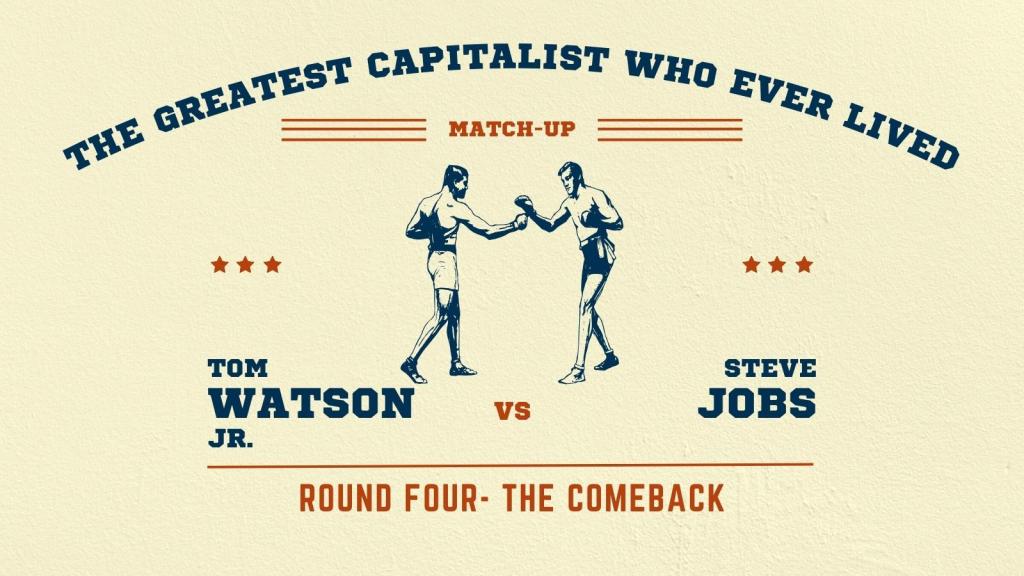
In their latest book, Ralph Watson McElvenny and Marc Wortman explore a bold argument: that Thomas J. Watson Jr., the second president of IBM, was the greatest capitalist who ever lived. McElvenny, the oldest grandson of Watson, and Wortman, an independent historian and freelance journalist, chronicle how Watson undertook the “biggest gamble in business history” and ultimately laid the foundation for the information revolution.
The Greatest Capitalist Who Ever Lived: Tom Watson Jr. and the Epic Story of How IBM Created the Digital Age makes a powerful case, but is it accurate? To find out, we’re stacking Watson up against some of history’s greatest titans of industry. In this five-part mini-series, he’ll compete against Tesla founder and X CEO Elon Musk, Carnegie Steel founder Andrew Carnegie, Amazon founder Jeff Bezos, Apple co-founder Steve Jobs, and Facebook founder Mark Zuckerberg.
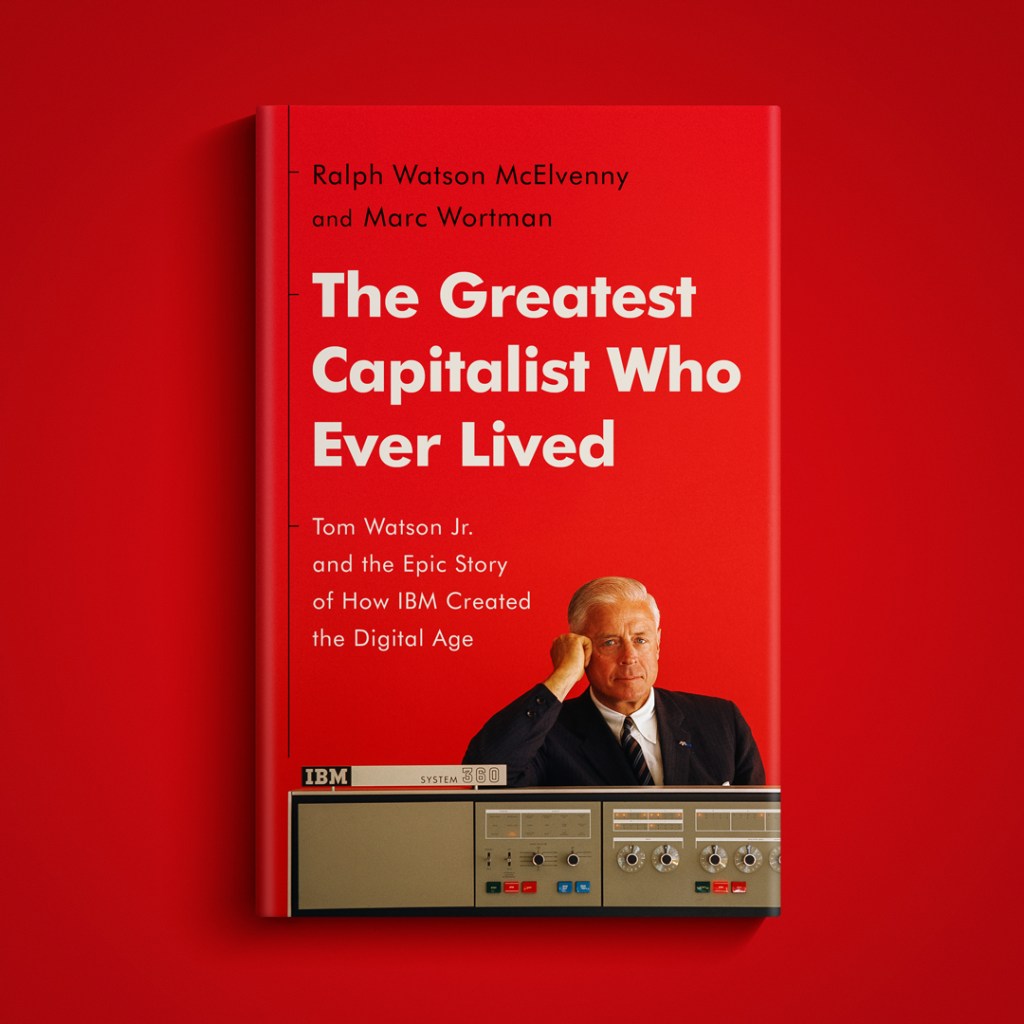
On Monday, we pitted Watson’s terror-to-titan childhood up against Andrew Carnegie’s rags-to-riches. On Tuesday, Watson went toe-to-toe with Elon Musk to decide who had the most impressive rise to fame. Yesterday, we weighed Watson’s existential gamble against Mark Zuckerberg’s refusal to sell Facebook. Today, we’re examining a fourth crucial element of the titan biography: the comeback.
Contender #1: Watson
Watson’s bet-the-farm gamble on System/360 didn’t pay off, at least not initially. The company kept missing shipment dates, had to abruptly sell stock, and faced a major cash shortage, jeopardizing the future of the entire company. After acknowledging that the delays were created, in part, by a top management team that was too far removed from the work on the ground and besieged by personality conflicts, Watson made perhaps the most difficult business decision of his life: “He told his beloved brother he was being replaced by a person both Watsons loathed.”
The company — and Watson — eventually recovered. “As the computers arrived,” the authors write, “the System/360 made general purpose mainframe computers essential to virtually every type of large organization, business, and laboratory.” IBM’s computers inspired entire industries, and alumni of the company would go on to start their own firms. Between 1964 and 1970, IBM’s annual revenues more than doubled, and the employee population increased to 269,000.
Contender #2: Jobs
In 1985, Steve Jobs left Apple, the company he had co-founded, after a long power struggle with the board and the CEO he had recruited years earlier. Along with a few Apple employees he poached, Jobs founded NeXT, a computer platform development company. NeXT specialized in computers for the education and business markets and also the visual effects industry after Jobs funded the computer graphics division of George Lucas’ Lucasfilms in 1986. However, the company never took off as Jobs had hoped.
Twelve years after Jobs left, Apple was on the verge of bankruptcy. After the then-CEO left, Jobs volunteered to act as interim CEO until a replacement could be found. He thrived, launching the famous “Think different” advertising campaign and the launch of Apple’s most iconic products, including the Apple Store, iMac, iPad, iPod, iPhone, and iTunes. In fact, the company’s current operating system (OS), is based on NeXT’s operating system. Today, Apple is one of the most successful companies in American history.
The Decision: Jobs. Watson had to make a tough decision and weather quiet a financial storm, but Jobs left the company he founded and returned 12 years later.
The Score: Watson – 2, Other Capitalists – 2
